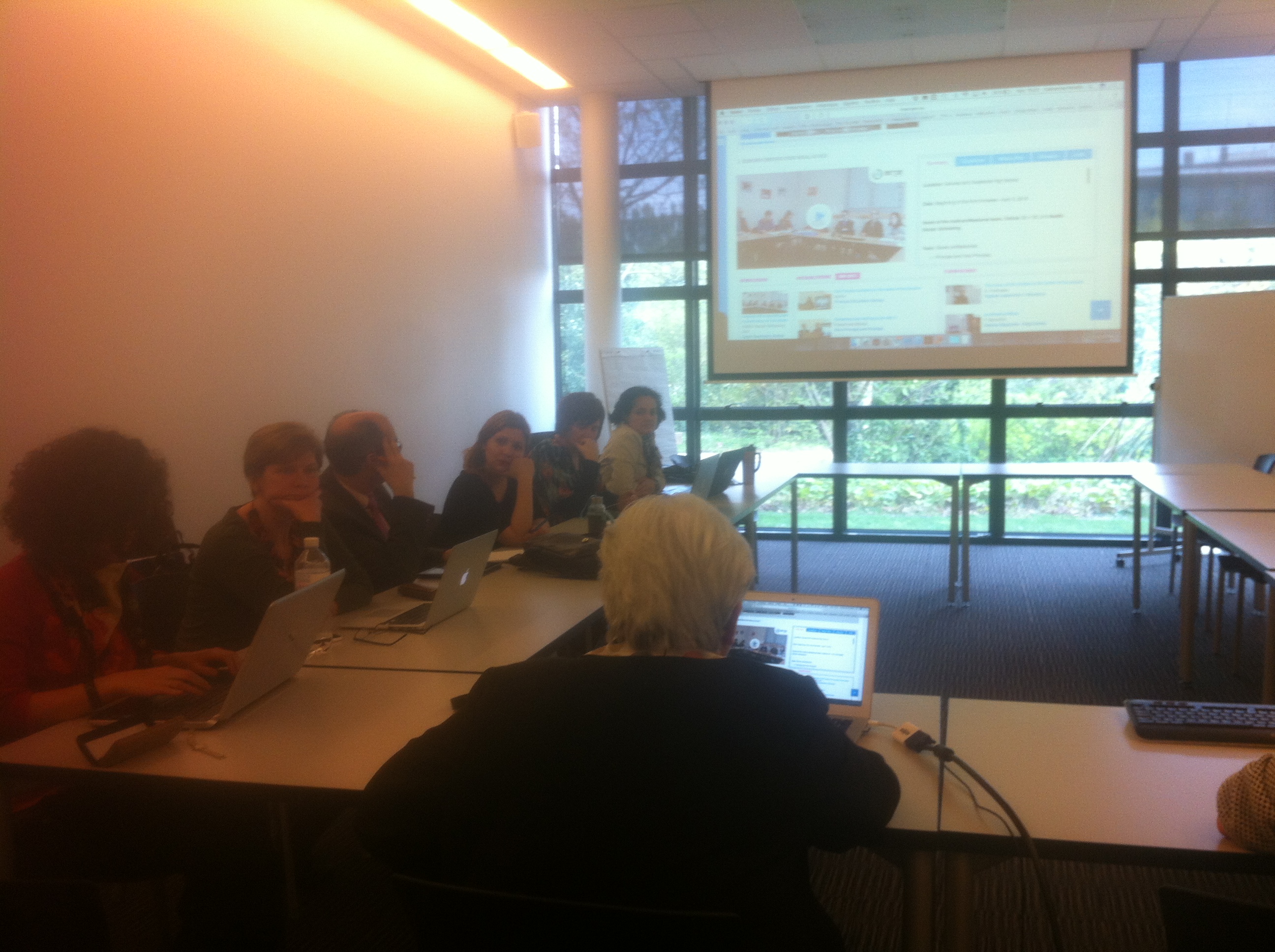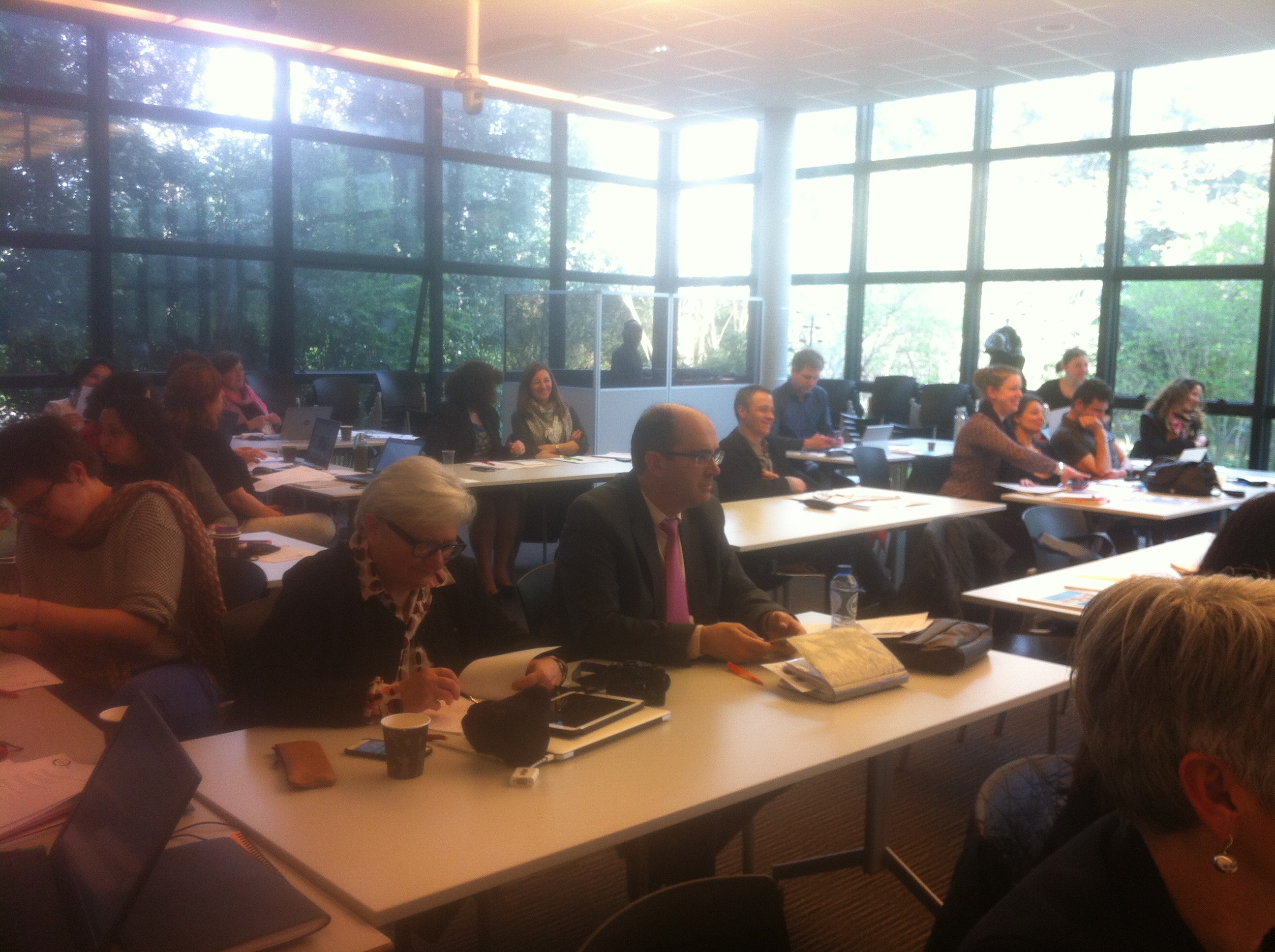

TOGETHER EVERYONE ACHIEVES MORE
Events

Supporting teams in the early school leaving prevention in Europe TITA: From experimentation to training
European meeting - French-English simultaneous translation
Tuesday, the 17.th of October 2017 – Ifé Lyon
9.00-9.15 Opening
Jean-François Pinton, President ENS Lyon
Marie-Claire Thomas, TITA coordinator, project officer Ifé-ENS Lyon
9.15-10.00 The European tools and Policies regarding early school leaving prevention; the place of TITA
Suzanne Conze, European Commission -Directorate-General for Employment, Social Affairs and Inclusion
Irena Psifidou, Cedefop European Centre for the development of vocational training
10.00 -11.15 The cooperation between various professionals: between ideal and suffering.
How to support the processes of negotiation and alliance ?
Marco Allenbach, Teacher Trainer HEP Vaud (Switzerland)
Video training, a tool for professional practices’ transformation
Luc Ria, University professor in Education Sciences – ENS de Lyon
11.30-12.00 Prevention and collaborations in differentiated school models.
Comparative reading France, Luxembourg, Canton of Valais (Switzerland)
Dominique Maillard, Céreq, Centre of public expertise in training and employment
13.15-15.30 TITA, TITAction tools, retrospective and perspective
From design to training
Interactive session with TITA partners
15.45-16.30 For an ethical positioning within the pluri-categorial teams in school.
The contribution of TITAction.
Antoine Castano, administrator « Education et Devenir”
Hervé Tugaut, Anne-Marie Benhayoun, Ifé-ENS de Lyon
16.30-17.00 Conclusions
Ifé-ENS de Lyon

European Trainers meeting - 2017 March 22nd
Supporting ESL multi professional teams in Europe TITAction: from experimentation to action
The work carried out under the TITA project confirms the need to link research, training and team cooperation. New training approaches and devices can accompany multi-professional teams and help them better understand the live issues that arise in schools in the different countries of the European Union.
Objectives
March 22, 2017 will be the occasion to:
![]() Present and precise the links between the co-elaborated resources under the TITA project
Present and precise the links between the co-elaborated resources under the TITA project
![]() Share the training experiences of the TITAction platform
Share the training experiences of the TITAction platform
![]() To develop, improve and disseminate the training scenarios presented.
To develop, improve and disseminate the training scenarios presented.
Program
09.00-10.00 Introduction
Where are we now? The contribution of each country to the construction of the TITA project
Catherine Perotin, deputy director, Ifé-ENS de Lyon
TITAction’s theoretical foundations and objectives
Theoretical, empirical and practical insight into Team Cooperation from the perspective of team processes
Maša Vidmar, researcher, Educational Research Institute, Slovenia
Theoretical basis and use principles of TITAction during Training Sessions
Marie-Claire Thomas & Hervé Tugaut, TITA project, Ifé-ENS de Lyon
Exchanges
10.00-12.00 Presentation of Training’s scenarios experimented with TITAction
Contents, videos used and first effects, Trainers’ testimonies from Luxembourg, Switzerland, France
Thierry Di Scala, Conseiller Principal d’Education, Lycée de Pertuis, France
Magali de Rocco, formatrice, 4motion, Luxembourg
Jean-Marie Lavanchy, Responsable de la filière Formation MAES, HEP Valais, Suisse
Exchanges
12.00-13.00 Lunch break
13.00-14.30 TITAction Conditions for use in different multi professional team context
Levers and breaks in the use of TITAction platform
Speeches from trainers and practitioners from Switzerland, Luxembourg, France
Yann Vuillet, Responsable du domaine des didactiques de la Formation secondaire, HEP Valais, Suisse
Magali de Rocco, formatrice, 4motion, et Jean-Marie Majerus, Lycée Redange, Luxembourg
Sandra Pitrat et Anne-Marie Benhayoun, France
Exchanges
14.30-16.00 Perspectives of use of the platform TITAction
Tracks of concrete actions
Two simultaneous workshops
- Experimenters countries: Luxembourg, Suisse, France
Which view of dissemination?
- Not experimenters countries: Spain, Hungaria, Slovenia
Which kind of technical and pedagogical adaptation is needed?

Discussions, exchanges, comparative look

16.00-16.15 Conclusion
Presentation of the emerging proposals











